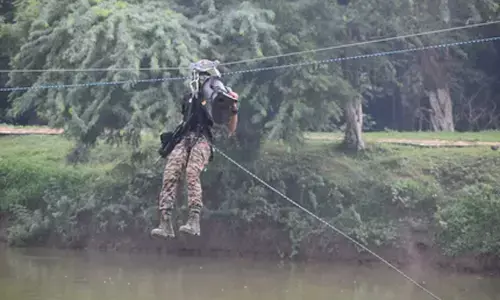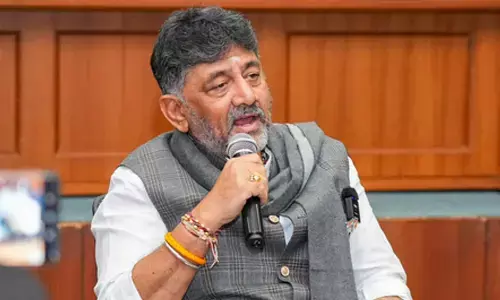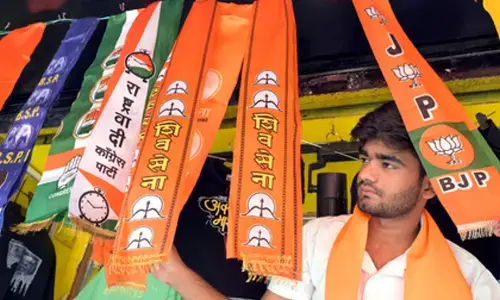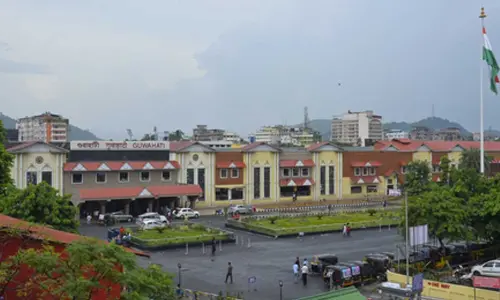Manage monsoon
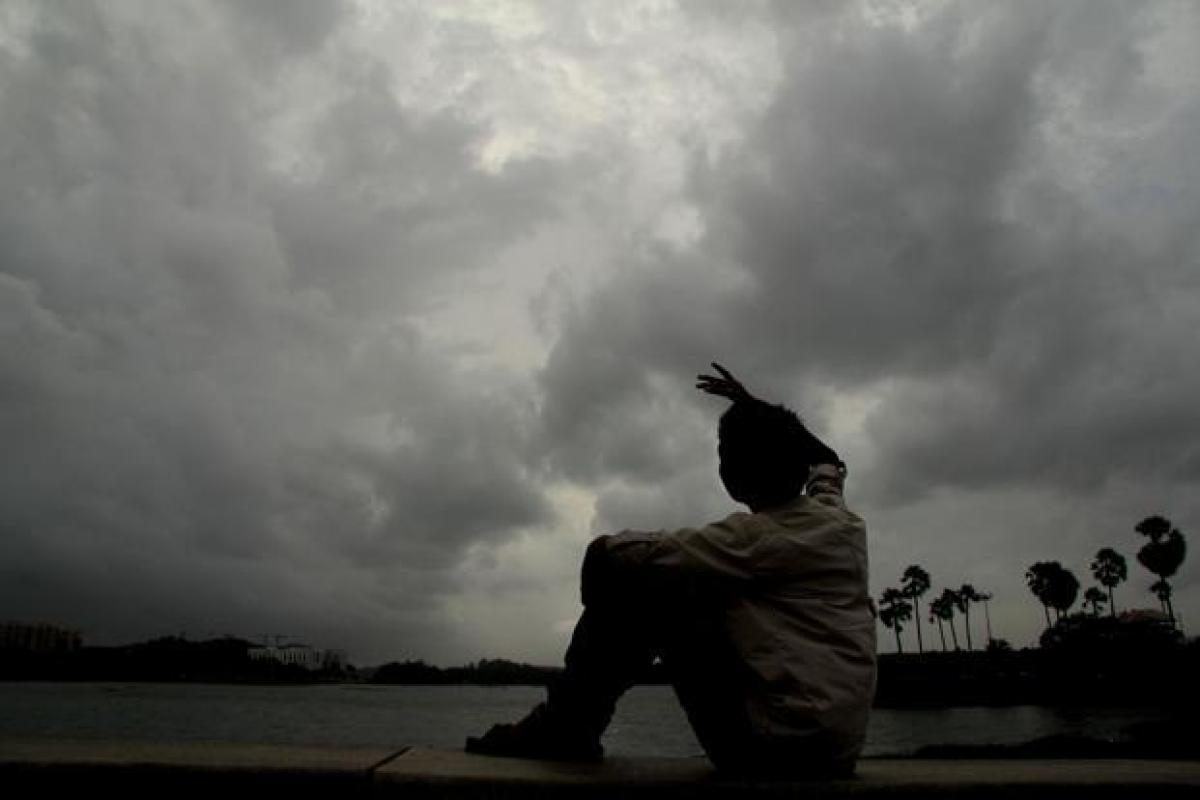
Monsoon will hit the Indian coast anytime now. But, India is going to face yet another year of deficient rainfall. The predictions of deficient rainfall are raising fears of drought. India will receive 88 per cent of rainfall of the Long Period Average plus or minus four per cent. The Met department has revised its forecast from 93 per cent to 88 per cent LPA.
Monsoon will hit the Indian coast anytime now. But, India is going to face yet another year of deficient rainfall. The predictions of deficient rainfall are raising fears of drought. India will receive 88 per cent of rainfall of the Long Period Average plus or minus four per cent. The Met department has revised its forecast from 93 per cent to 88 per cent LPA.
The grave impact of this nature’s silent fury is obvious as two thirds of Indian agriculture is rain-fed and more than half of the workforce depends on this sector. Even other sectors would be hit as the market would contract due to deficient monsoon-induced income distress.
In the age of climate change, nations should learn to cope with such conditions. Thus the imperative today is to design and execute sound monsoon management measures to alleviate the suffering of the people. Such strategies should encompass a wide range of sectors. Monsoon is a truly globalised phenomenon. It is integrated and linked to the ocean current in the faraway Pacific, the temperature of the Tibetan plateau, the Eurasian snow and even the freshwater content in the Bay of Bengal.
Though the science of monsoon is taught to a small extent in our schools, it is still not part of usable knowledge. The government officials and the common folk alike need a high level of monsoon literacy and knowledge of adaptation measures. In fact, the survival of man as a superior species in nature is linked to his ability to adapt to nature.
As eminent environmentalist Sunita Narain said the more we understand the monsoon, the more we will learn how to move from unraveling nature to imitating it for sustainable development. For instance, every drop of water should be harvested where and when it falls. Efficient water use practices should be incentivised. Scientific practices that consume less water and give more yield need to be encouraged. Indiscriminate use of water should be discouraged.
The authorities should be ready with contingency plans especially with provisions for alternate crops. Noted agricultural scientist MS Swaminathan suggests an action plan for managing the monsoon. It includes enhancing water security and water use efficiency, and a grain storage policy that promotes small storage bins at the farm level, rural godowns especially for perishable commodities, and a national grid of ultramodern foodgrain silos.
Such measures can also include improving fertilizer use efficiency, popularising the methods of managing the triple alliance of pests, pathogens and weeds. Apart from mandatory water harvesting, farmers have to be provided with plan protection measures and post harvest technologies.
India suffers from huge post harvest losses. Earmark potential areas for establishing cattle camps with access to water fodder where the animals can be looked after during a drought emergency. Establish groundwater sanctuaries at appropriate places. These are concealed aquifers which should be tapped only when absolutely essential. Seed banks consisting of seeds of alternative crops should be maintained. Encourage the production of coarse cereals as it would promote nutrient security, too.








